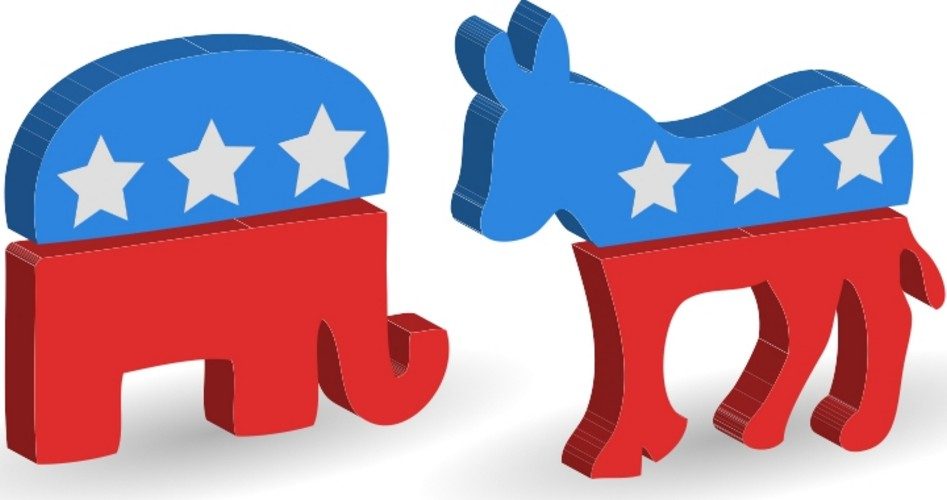
Democrats have added a plank to the Democratic Party platform that calls for an international approach to greenhouse gas emissions. The platform is expected to be approved by the party at the national convention on September 4.
The platform pledge indicates that the United States has been leading the world in efforts to reduce greenhouse gas emissions through regulations and market solutions, and that the Democratic Party will continue to lead the international community in such efforts.
The platform plank indicates, “Democrats pledge to continue showing international leadership on climate change, working toward an agreement to set emission limits in unison with other emerging powers.”
“Democrats will continue pursuing efforts to combat climate change at home as well, because reducing our emissions domestically — through regulation and market solutions — is necessary to continue being an international leader on this issue,” the platform continues.
The plank is likely to set up wholesale debate with the Republican Party, which has argued that the green regulations and market solutions have effectively hampered economic growth.
As observed by The Hill, the platform’s language, however provoking, is “less aggressive” than the 2008 platform, which featured significantly stronger language that laid out the case for international deals.
“We need a global response to climate change that includes binding and enforceable commitments to reducing emissions, especially for those that pollute the most: the United States, China, India, the European Union, and Russia,” it stated.
The language in the 2012 party platform that focuses on domestic approaches to climate change legislation is also arguably softer than it was in 2008.
The Hill explains, “It lacks the 2008 version’s explicit call for cap-and-trade, a proposal that collapsed in the Senate in 2010 after House Democrats moved legislation through the lower chamber. Some Democrats say that vote was a factor in Democrats’ losing their House majority in the fall of 2010.”
On this issue, the Democratic Party differs significantly from the GOP platform, which has criticized the Democratic Party for its emphasis on climate change, asserting that climate change legislation has been detrimental to the economy without bringing about a significant reduction of greenhouse gas emissions.
In fact, the Republican Party platform took aim at the military’s focus on climate change. The GOP platform takes issue with the White House National Security Strategy released in 2010, which stated, “The danger from climate change is real, urgent, and severe. The change wrought by a warming planet will lead to new conflicts over refugees and resources; new suffering from drought and famine; catastrophic natural disasters; and the degradation of land across the globe.”
The GOP platform criticizes the emphasis of the 2010 National Security Strategy on climate change as opposed to other threats that the GOP has deemed more “real, urgent, and severe”:
The strategy subordinates our national security interests to environmental, energy, and international health issues, and elevates “climate change” to the level of a “severe threat” equivalent to foreign aggression. The word “climate,” in fact, appears in the current President’s strategy more often than Al Qaeda, nuclear proliferation, radical Islam, or weapons of mass destruction.
During Mitt Romney’s speech at the Republican National Convention, he made similar criticisms of President Obama and his administration’s emphasis on environmental issues, seemingly over the economy.
Romney said, “President Obama promised to begin to slow the rise of the oceans,” pausing just long enough for the audience to laugh at the unstated absurdity of Obama’s focus, “and to heal the planet.” Differentiating himself from Obama, Romney then stated, “My promise is to help you and your family.”
Romney was referring to President Obama’s 2008 nomination acceptance speech when he declared, “We will be able to look back and tell our children that this was the moment … when the rise of the oceans began to slow and our planet began to heal.”
Meanwhile, at a recent campaign event, President Obama continued to advocate for more climate change legislation and regulations. “Denying climate change won’t make it stop. These things won’t make for a brighter future,” he declared.
But Romney summed up much of the GOP’s stance on the issue of climate change when he said, “We don’t know what’s causing climate change on this planet.” And Romney’s running-mate, Representative Paul Ryan of Wisconsin, harbors similar skepticism about climate change. Ryan once said it was difficult to fight climate change [supposed global warming] when “much of the state [of Wisconsin] is buried under snow.”
The focus of the Republican Party is going to be the economy. For that reason, the GOP platform also calls upon Congress to block any new greenhouse gas regulations from the Environmental Protection Agency, asserting the regulations “will harm the nation’s economy and threaten millions of jobs over the next quarter century.”
“We will end the EPA’s war on coal and encourage the increased safe development in all regions of the nation’s coal resources,” the platform states.
It also states that the GOP will be adopting an “all of the above” energy policy that includes supporting the exploration and development of the Outer Continental Shelf and the Arctic National Wildlife Refuge, as well as construction of the Keystone XL pipeline. The platform takes aim at the Obama administration for what it calls picking winners and losers within the energy sector, particularly the measures supported by the Obama administration that directly target coal production. The EPA, for example, has proposed for the first time carbon emissions standards for new coal-fired power plants that would bar new facilities unless they could somehow find a way to store carbon emissions.
The Democratic Party platform also indicates an “all-of-the-above approach,” stating that approach will be focused on “developing America’s many energy resources, including wind, solar, biofuels, geothermal, hydropower, nuclear, oil, clean coal, and natural gas.”
However, the 2012 Democratic platform includes less harsh language against oil companies than what was found in the 2008 version, which made several pledges to address the “tyranny” of oil.
The current version also backs “expediting the approval process to build out critical oil and gas lines essential to transporting our energy for consumers.”
It lays out support for “clean” energy programs, higher automotive fuel economy standards, and a reduction in tax breaks for oil companies.
Illustration: 3d political Democrat and Republican party symbols via ShutterStock




